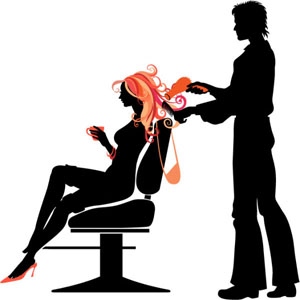I perform close up magic and stand up magic. I also run a children's magic company called Ready Steady Magic. You can find out more about me on YouTube! =P
As a professional magician and Member of the Magic Circle, I work hard to create incredible events.
Feel free to ask me whatever you wish and let me reveal the secrets of what I do (but not those secrets!)
I didn't know what to expect! It's good fun though, I like meeting people and I like performing. Sometimes it feels like showing off, which is fine. I got into magic because I was interested in lots of showing off things, acting, comedy, circus, but magic was the one that stuck the most.
I guess the things I didn't realise is that it would involve so much driving. The performing time is just a small part of everything I do. I actually enjoy the running the business side, but I could do with less driving around. Wouldn't it be great if all my shows were within 15 miles.
As it's your creative output and I don't know anything about the rest of the story, I don't know if I should give an answer but if it's a dream then surely it can be actually impossible. I would go for, magician flips coin on the ground, when the coin lands it turns into a hippopotamus.
I'll take 10% of all royalties forwarded to me once a quarter. Thank you! =P
*Shakes magic 8 ball...
"The outlook is probable"
That's great, because I don't have an answer.
Navy Officer (Former)
 Just how educated is the typical US military serviceman?
Just how educated is the typical US military serviceman?
Help Desk Technician
Hairstylist and Makeup Artist
 What types of clients are the worst to deal with?
What types of clients are the worst to deal with?
I don't personally work with an assistant but although I think non-disclosure agreements are used, I don't know if they are enforceable. As I'm sure you're aware, unless it's actually tested by case law, it's difficult to say if it would be effective. I imagine that damages would have to be calculated based on loss of earnings, but again... how do you start to calculate that?
As much of magic's secrets have a long history and many people are adapting them for their own use, a better place to start would be with what is original to the show - trademarks, copyrighted performances and scripts, performance rights, can all be protected. And where there is a unique method, patents are worth looking at. You might want to read up on Teller's legal battle over his Shadow Act.
Here's one more thing to consider. I heard a great piece of advice once, which was "Never marry your assistant." It was at an event and was one of those throw away lines that got a bit of a chuckle, but actually has some reasoning behind it. Too many magicians decide to set up their show with their wife / girlfriend. If magic is your full time job, that can be a big mistake. If the relationship breaks down, and you don't want to work with your ex-partner, then how do you decide who owns what from the show. Magician's assistants these days aren't, or shouldn't be, just the pretty stage hand that brings on props. They have creative input too, even if their name isn't on the poster. Sooner or later there is going to be a divorce settlement where the ex wife says, I'm having the car, the house, the kids, half the magic props and worldwide performance rights.
My advice is hire a professional dancer and pay a professional fee. Then you can write a contract that says that the dancer is employed as part of the show, and has no right to claim any ownership of it.
Thanks for your question. Hope I got you thinking about the complex issues, even if I couldn't quite answer your question exactly.
Edit: I answered a similar question to this earlier too. I said the same thing! Good to see I'm being consistant.
I think that you should enjoy the performance. As I have said in multiple other answers - I do not reveal secrets. If you seriously want to learn magic, then I suggest you buy a book and learn it the same way everyone else did. As with anything, it takes time and effort to master it.
Firstly Joseph - you have the right attitude! Knowing the secrets to hundreds of tricks, does not make you a magician! Instead it's best to learn a small repertoire of routines that you can do really well. For a beginner, I usually say six to eight routines is a good start. I regularly perform about 15 different routines, with about another 15 as my back up material that I perform occasionally.
There are many books that I can suggest to learn routines from, but that really does depend on what type of magic you are interested in.
For the magic theory, I suggest Strong Magic by Darwin Ortiz. The principles in there can be applied to all types of magic.
For some interesting essays on the philosophical, theatrical or moral issues in magic, I suggest Shattering Illusions by Jamy Ian Swiss (I think it's out of print, but his second book is still available).
I also enjoyed Kid Control by Julian Franklin. That's focused more on managing the behaviour of children at birthday party shows, but... as magicians we are often interacting with people so I found it quite useful across the board.
I've also heard good things about Maximum Entertainment by Ken Webber, but I haven't read that myself.
And lastly, for a real education in magic, don't just stick to magic books! Read about or take classes in drama, public speaking, confidence building, clowning and dancing.
-OR-
 Login with Facebook
Login with Facebook (max 20 characters - letters, numbers, and underscores only. Note that your username is private, and you have the option to choose an alias when asking questions or hosting a Q&A.)
(A valid e-mail address is required. Your e-mail will not be shared with anyone.)
(min 5 characters)
By checking this box, you acknowledge that you have read and agree to Jobstr.com’s Terms and Privacy Policy.
-OR-
 Register with Facebook
Register with Facebook(Don't worry: you'll be able to choose an alias when asking questions or hosting a Q&A.)